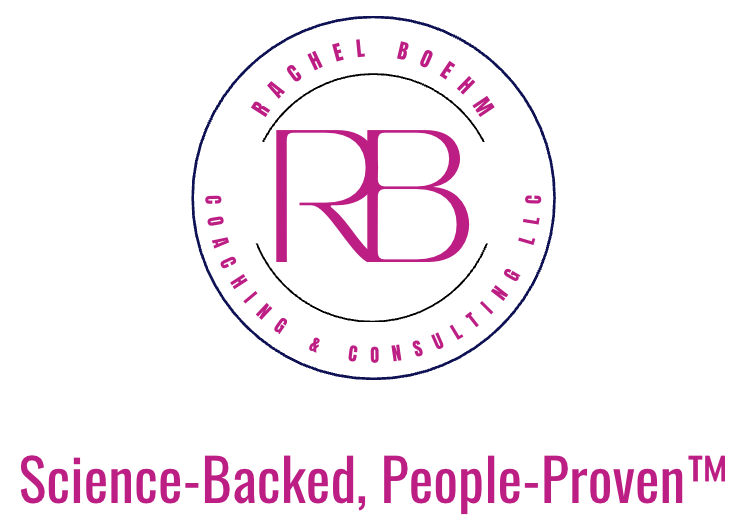The "Work-Life Balance" Trap, And What to Do Instead
If you also find the term “work-life balance” annoying, this post is for you. My issue with the term isn’t the word “balance” it’s the phrase “work-life”. As if work isn’t a part of life. As if what usually gets thrown into the “life” bucket doesn’t also take work.
“Work,” as in your job/business whatever pays you money to live, can be fulfilling. It can be fun. You might actually love your “work.” You might actually look forward to work. And/or you might find your “life” (as in relationships with yourself and with others) to be lacking.
It takes work to date, have a marriage, raise kids, and it also takes work to live as a single. It takes work to have pets and stay healthy.
Work, as in effort, is an inescapable part of life.
So the phrase “work-life balance” is dumb, in my opinion, because it’s all life. And it’s all work.
And if we don’t acknowledge this, it can set us up for burnout, or at least immense dissatisfaction and stress.
Instead, I’d like to replace that phrase with either “work-leisure balance” or “others-self balance.” Here’s what I mean (after reading, let me know which phrase you like best).
Work-Leisure Balance
The term is pretty self-explanatory. I was actually first thinking, “work-self balance,” but let’s be real. Working on yourself is also, well, work. So if we’re looking for a way to describe the divide between work (or effort) and non-work (or no effort) then perhaps the phrase we should use is “work-leisure” balance.
I used to have a really hard time with “leisure.” I felt I had to constantly be moving, doing, and productive. The reasons behind this don’t matter right now. What matters is, I finally discovered how critical leisure time is to succeeding in all the truly important goals I had for myself.
If you’re like me, it might be helpful to learn that leisure:
• reduces levels of anxiety, depression, and stress
• improves physical and mental health
• improves social and family relationships
• increases self-awareness and development
• helps us learn and master new skills
• improves creativity and productivity
• reduces the risk of burnout
As a result, your financial situation might improve as well (Li et al., 2021). You probably could have guessed a number of these. The question is, why aren’t you consistently experiencing leisure so you can reap these benefits?
It might be because you’re so busy trying to have “work-life balance” which is still synonymous with family-friendly, that you never take time for yourself. That brings me to the other replacement option. Others-Self Balance.
Others-Self Balance
Whether we are at work or home, we have to deal with other people and with ourselves. One of the biggest struggles I hear my clients face is not having time for themselves. This is true regardless if they are married/partnered or have kids. Even a single individual without kids or a pet can feel like they don’t have time for themselves.
When we’re chasing work-life balance, isn’t the “self” one of the things we are chasing? Even “leisure” or the “life” category of “work-life” might mean we are spending time with others. This can leave us still searching for “#metime,” which is critical to our mental, emotional, spiritual, and physical health.
Then again, ensuring one gets “me time” takes work, and what you do with that me time could also take work if you’re using it for personal development.
So What’s The Phrase and Why Does it Matter?
Perhaps, in the end, the phrase du jour should be “effort balance”. You have your career/business, your friends, your family, your love life, maybe a pet, you have a home to care for, and you have yourself to continue getting to know and caring for. Every one of these commitments takes effort.
The tricky thing is that some efforts or commitments will feel like demands some days while others will feel like replenishments some days. Some days, going to work (as in your job/business) will feel like a drain other days it will feel exciting and fulfilling. Some days, time with your partner or out on the dating scene will feel reinvigorating, and other days not so much. Even time alone can be some days a much-needed respite or the “absolute worst!”.
There’s a theory in psychology called the Job-Demands Resources Model. Without jumping deep in the weeds, just think of it for now as balancing how you experience these various efforts on a given day. Are you refilling your energy or resources enough to meet the demands on you, regardless of where each comes from?
At the end of the day, I think it could be helpful to come up with some universal phrase to help us articulate what we are all striving for. But that’s unlikely. What really matters, is that you have clarity for yourself on what you are striving for. Call it whatever you want, “work-life,” “work-family,” “effort-balance,” “others-self,” or “apples-oranges”.
Get crystal clear on what you are striving for, and then identify a phrase that articulates that goal to you and reminds you that you are 100% worth pursuing and achieving this balance.
If you need help, book a complimentary discovery call here.
Reference
Li JT, Zeng BG and Li PY (2021) The Influence of Leisure Activity Types and Involvement Levels on Leisure Benefits in Older Adults. Front. Public Health 9:659263. doi: 10.3389/fpubh.2021.659263


